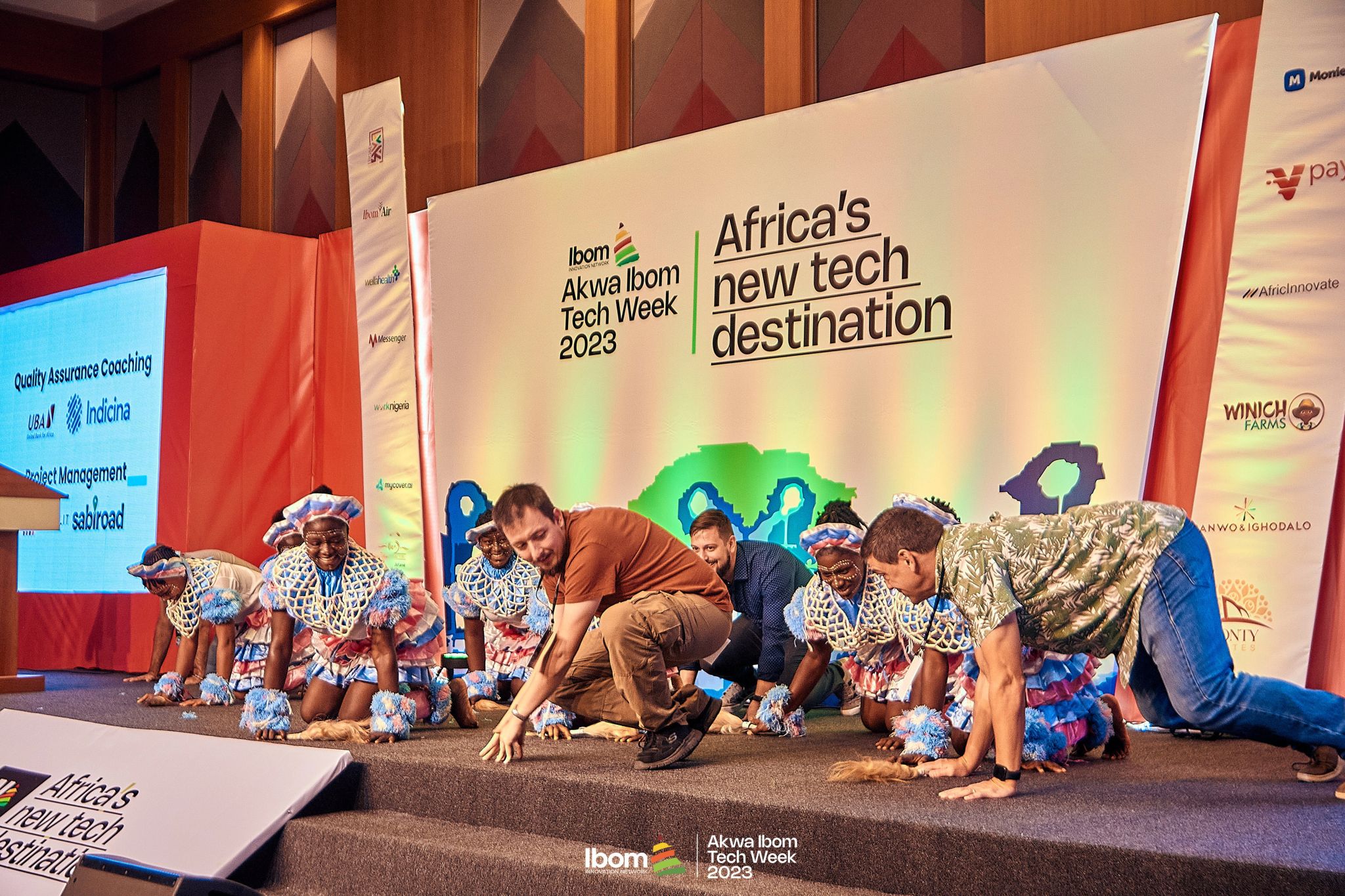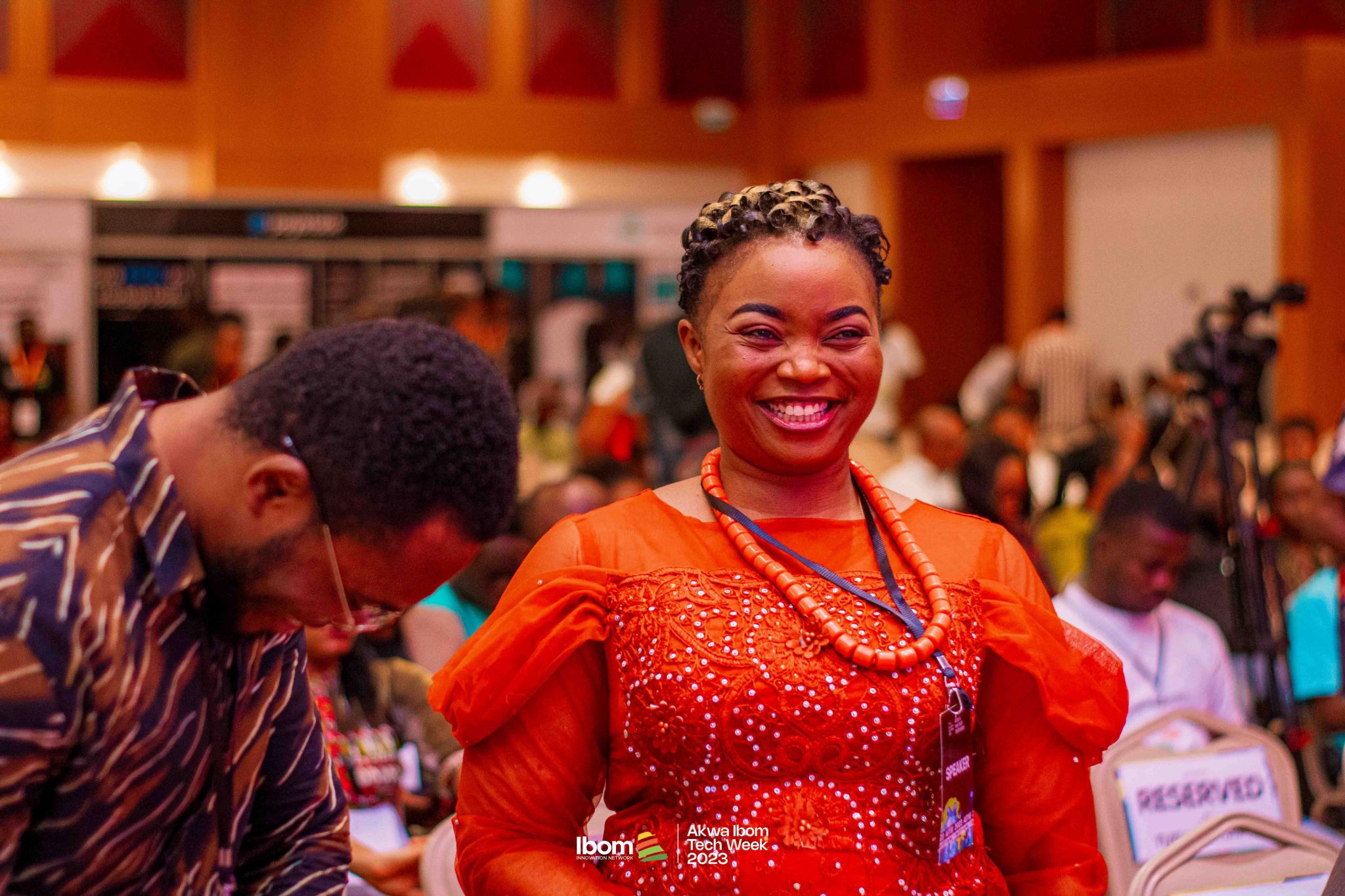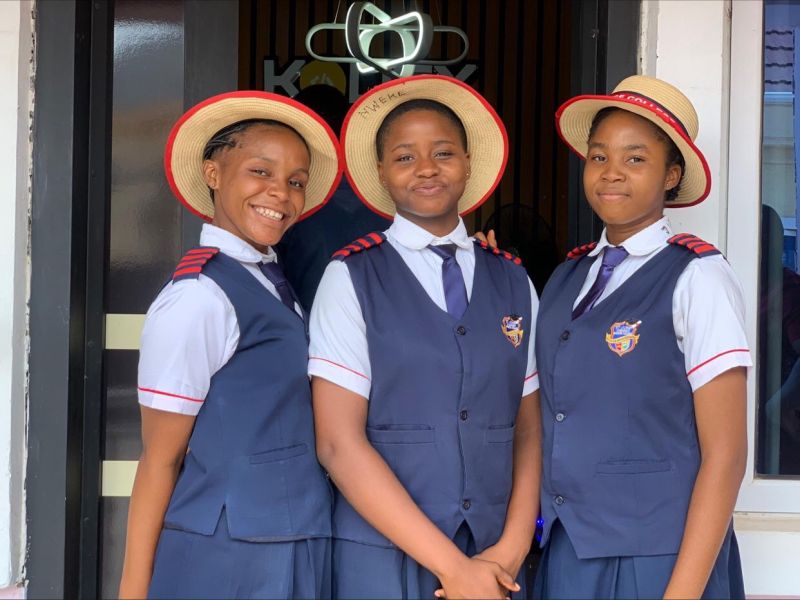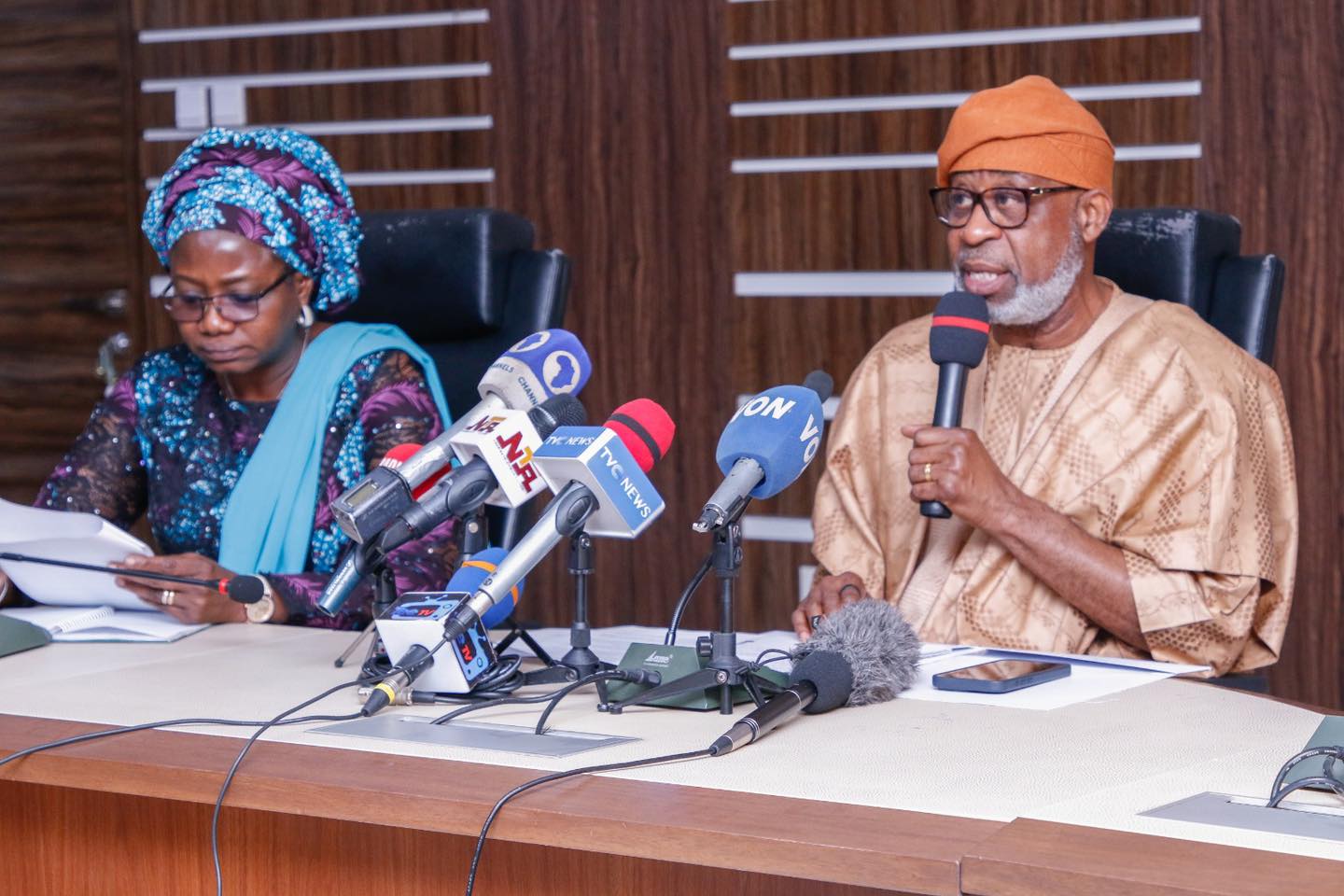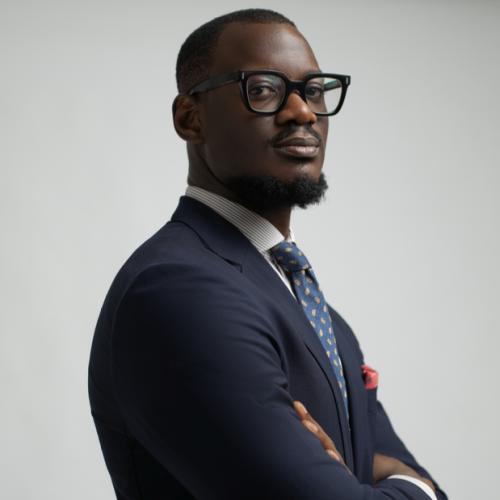On Valentine’s Day in 2014, I got the biggest surprise of my life.My boss at the big pharma where I worked called me after a meeting and told me I had to move to Kenya.
I was like, “huh?”
A few months earlier, during my end-of-the-year performance review, my boss had said that my department was evolving. I had a future there, they assured me. However, my new role could be based abroad.
Although I got this heads-up, it never occurred to me, not even for a second, that I’d be relocating. I hadn’t considered leaving the country since I was 16 when I thought of going abroad for uni, a decision my parents vetoed.
“All my kids are going to get their first degree in Nigeria,” my father had said. By the time I finished my university degree, I had no intention of returning to school. Then, I got into the workforce almost immediately.
Growing up, I had an idea of the life and family I wanted, driven by the Nigerian Dream: Live in Nigeria, go abroad for holidays and come back. The critical thing is I always have to come back. I’ll admit this: it takes privilege to believe in the Nigerian dream. And I was protected. I was privileged.
So, imagine how I felt when my boss called me aside and said: “Irene, I’ve been unsuccessful in keeping your role in Nigeria. The higher-ups in the Global office say it has to be Kenya.”
My biggest dilemma was the potential complication: I was in a serious relationship. My boyfriend, unlike me, had always wanted to Japa. He had a green card and a good job. But I always told him, “Listen, we have an opportunity to start a life here before considering relocation. Why do you want to leave now?”
Naturally, he was one of the two people I called immediately. I told him I’d say no to Kenya if he was with me. We could stay here for a bit and build a family first.
Now, listen; according to my boss, the consequence of not moving would be that I would have a vague role within the company. They could either phase me out of the business or find another Nigerian-based role. But I was happy to stay back so we could start our lives together.
Do you want to hear what this guy said? He told me, “Don’t make any decisions based on me. Whatever you decide is fine.”
That wasn’t what I wanted to hear.
In my mind, the only interpretation of what I heard was, “You’re on your own. Do what’s best for you.” I was so mad the relationship ended that day. Years later, he told me he meant he’d be okay with whatever I decided.
My father was the other person I called that morning. He thought it was a fantastic career move, but it would be difficult if I wanted to settle down. In the following days, I convinced myself that moving could be good. To be fair, I’ve always moved in the direction of an opportunity. Between 2008 and 2014, I worked in Zamfara, Rivers and Enugu states and sold healthcare products in more than 20 states in Nigeria.
It was time to be on the move again.
On April 27, 2014, I landed in Nairobi with nine bags, for which I paid ₦148k in excess luggage fees. I started work the following morning.
When you move to a new country for work, two things are paramount: Settling in at work and finding your community. When a company is paying for your keep and your work permit in a foreign country, they expect you to work harder than others, and if you don’t meet that, it causes internal dissent. Professionally, my first few months in Kenya were intense and gruelling.
But you know, I had to also find time for social connections. I’ll tell you one thing about working as an expat abroad — people treat you as temporary. They interact with you like they know you’re leaving. It’s a lonely life, and [the quality of] your relationships are its biggest manifestation.
So, in my first few months in Kenya, all I did was pretty much google “Nigerians in Kenya” to figure out how to build my community. It led me to InterNations — an expat community. I reached out to the first person, then the second, and started expanding my network one person at a time.
Two years in, I had built a semblance of a community. There was Mo, my first friend at work. She was energetic and feisty and had a lot of good vibes. Her parents loved me, too, and her home became the place I spent my Christmas holidays. There were also the friends I hosted for dinners and house parties when I fully settled in.
After two years, Kenya had started to feel like home, but it wasn’t home. The friends I made got me through a lot, but it still got lonely from time to time in the five years that followed.
Then, 2020 came with Covid. For the first time in years, there was a possibility of returning home for good. The country I left in 2014 had changed, though. Everyone I knew was desperate to get out.
I was undeterred by this for two reasons: I desperately wanted to see my family and loved ones after Covid. It didn’t help that it coincided with a tough year at work. The African business was less attractive to my organisation, so they were winding down operations in several locations. The possibility of another relocation elsewhere loomed, and I didn’t want to go through that again. At that point, I was starting to feel like I had reached a ceiling at work and wanted change or something close to it.
When people ask me why I came back, I tell them that Covid was tough and my parents were really ill. There was also an opportunity to cash out at work and return home. Both reasons were valid.
But did I intend to stay back? To be honest, I don’t know. When I moved back in March 2021, the Nigeria I returned to was difficult to recognise. For example, my parents were very comfortable when I left in 2014. In 2021, they weren’t as comfortable, and I was almost as good as the breadwinner. Also, people and businesses were leaving in droves.
So, why did I stay back? Short answer: Conviction. This is where it gets interesting.
When I sorted out business at home, nursed my parents back to health and decided to return to work, I got two offers in Kenya and another in Nigeria. The Kenya roles offered more money, but the Nigerian role drew me in. I believed so strongly in the problem they were trying to solve — a problem I’d been thinking about — that it’s hard to invest in healthcare because we don’t have the data. I loved the vision. There was no way I wouldn’t be a part of it. It was a pursuit of conviction and purpose. So, I stayed to help solve this problem.
Conviction is an exciting thing. I say this because the company eventually closed down, and when it did, I found another reason to stick around. First, the companies that made living and working in Nigeria, and by extension Africa, attractive were exiting the continent.
I work in healthcare, so let me put this in context: We saw people and businesses leave the country in the 80s and 90s. But those businesses that left paid heavily to come back. A time will come when big pharma companies will need to buy the small businesses that filled the void they left to return to Africa. It’s happened before — Neimeth Pharmaceuticals today resulted from Pfizer downsizing in the country in the 90s.
Because of that, I told myself that I’ll be here when those businesses return and, in that time, do the business that allows people to come back. The result of that is Infinity Health, a healthcare and life sciences business I started.
Infinity Health is leveraging technology to give healthcare businesses springing up now a route to the market by taking regulatory services and simplifying them for them in the way they can afford, making data available in small chunks they can afford. I intend that in five years, they will tell how someone paid billions of dollars because Infinity Health is the easiest way to access the African healthcare market.
That’s the conviction. That’s the reason I stayed.
It’s been almost three years since I made this decision, and let me not lie to you: It’s singularly the hardest thing I’ve done. I’ve paid very dearly for it, and I haven’t even won yet.
I’ve gone from being very comfortable, earning about $80k/year, to earning nothing. Last year, I didn’t make any personal income because I spent all that time building a business. But hey, I’m here already.
In that time, I’ve learned a few things, too. People want to stay in the country. It’s the country discouraging and demotivating young people. And I get it; people leave because they have nothing to aspire to. The fact that I’m still here and dreaming is because of my privilege. I’ll always acknowledge that.
I no longer speak with the same finality I spoke with in 2021. It’s getting harder to insulate myself from the challenges in this country, and by extension, I’ve lost some of the conviction and belief I had three years ago. In my head, I’m still here for the long haul. But do I also regret moving back sometimes? Absolutely.
But as long as I have my mum, dad and family, I’ll continue to find the strength to stay and do what I must. The last time I left the country, I came back to meet my sick parents. I can’t do that again.
In my heart, I know I might have to leave again if this business thing doesn’t work out. It’s now about self-preservation, not about clinging on to the remnant of the Nigerian dream. I don’t think that exists anymore.
That said, will there be winners when this dust settles? Yes, and I want to be one of them. That, my friend, is the reason I stayed back.









